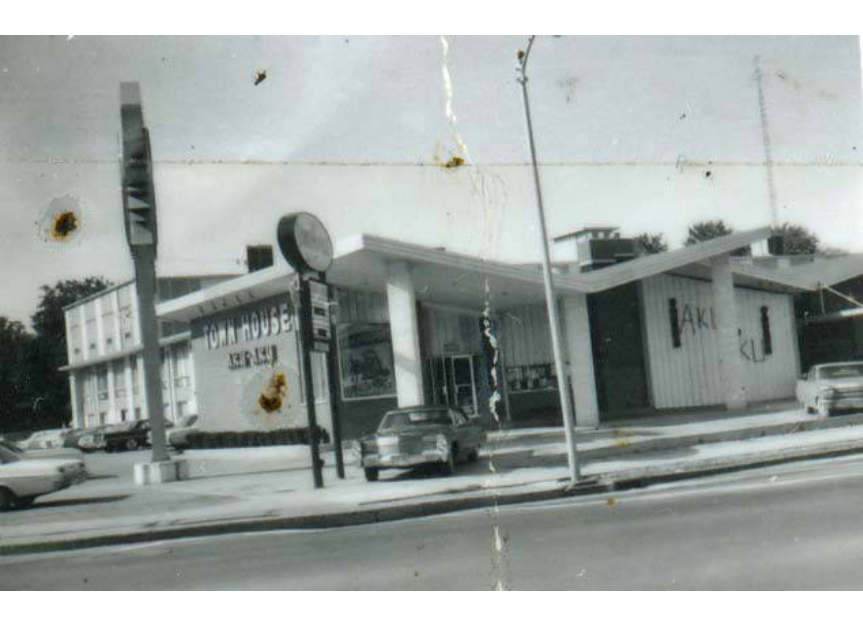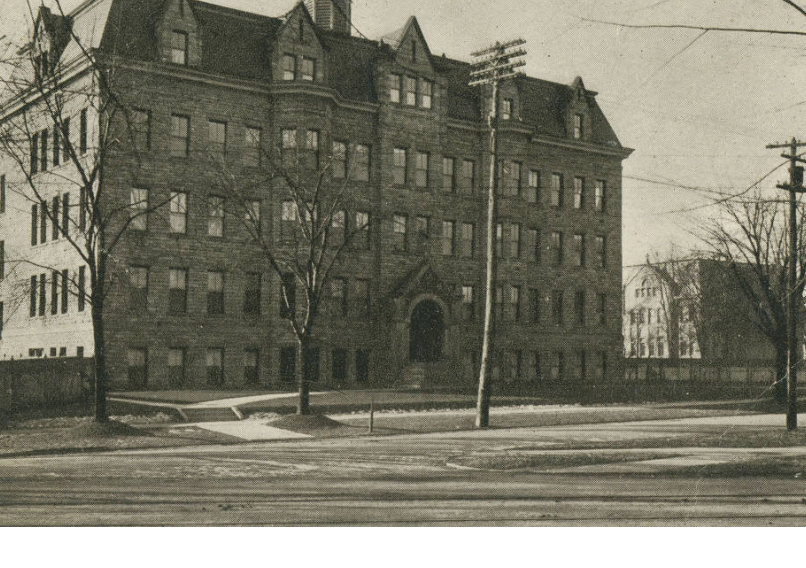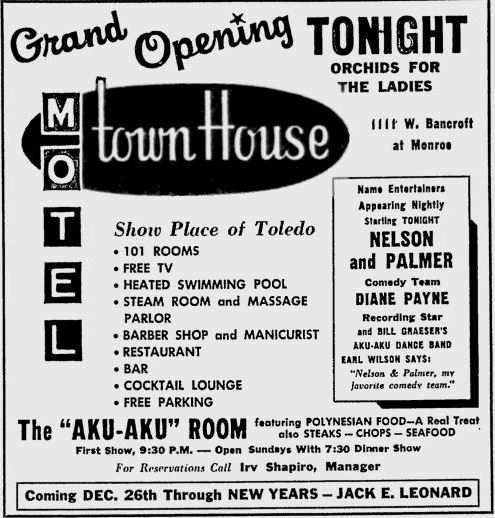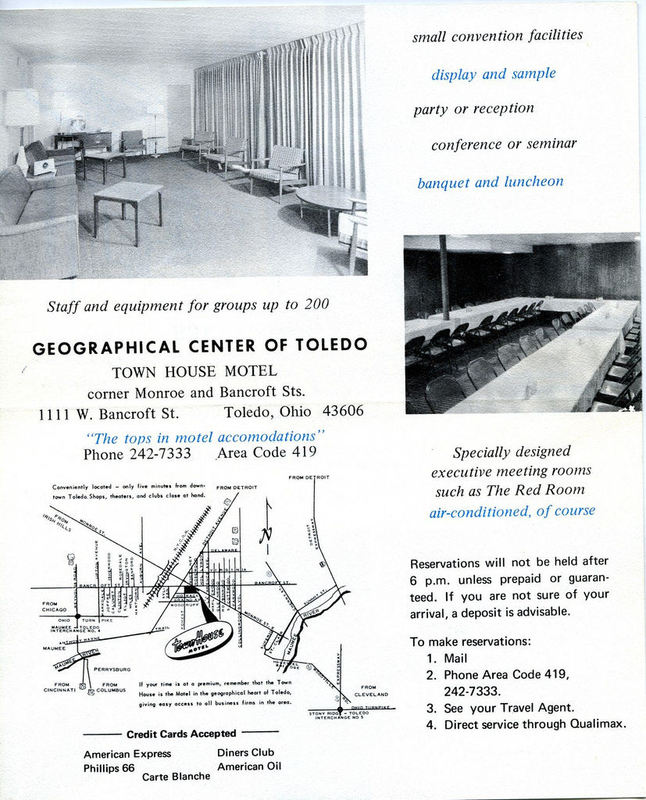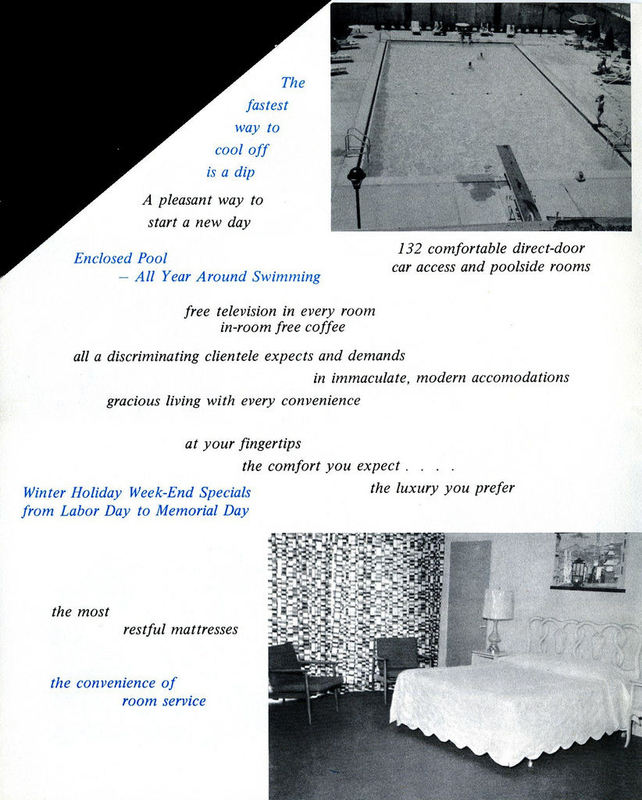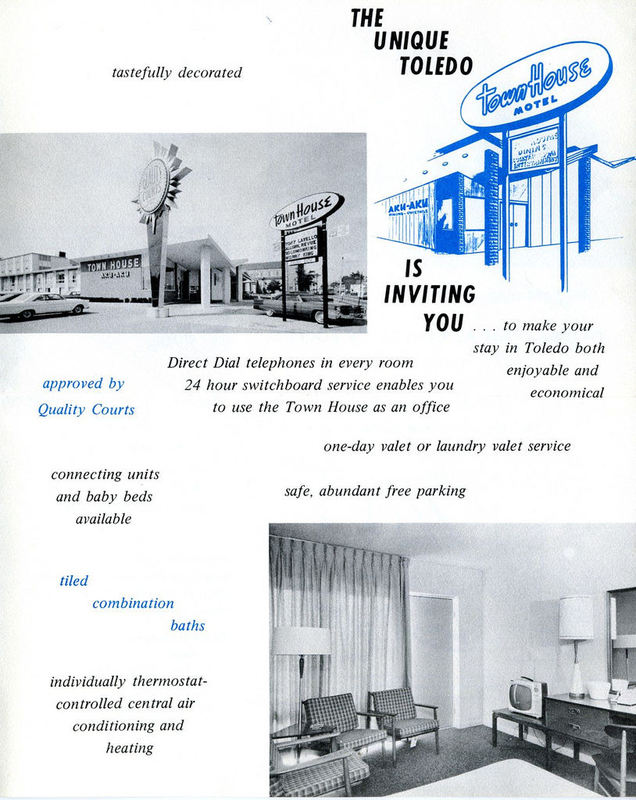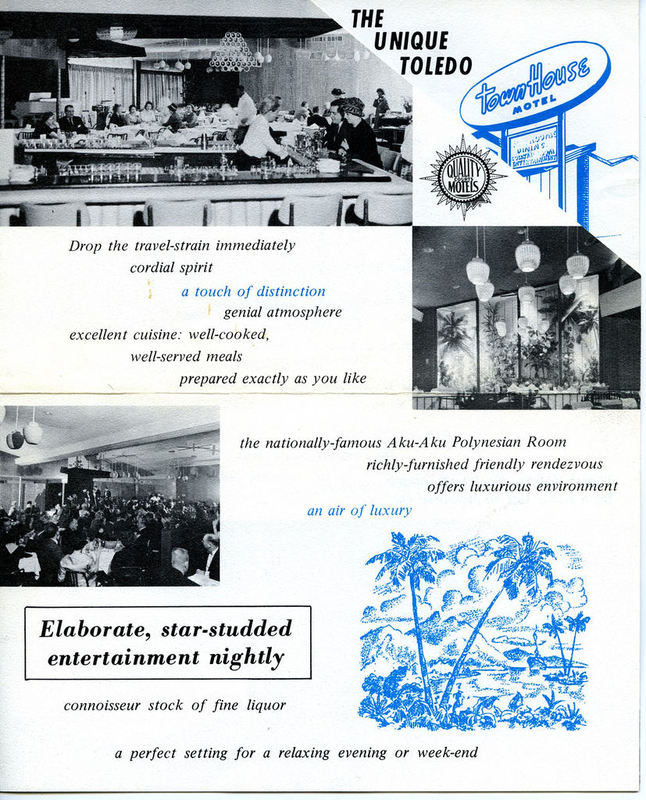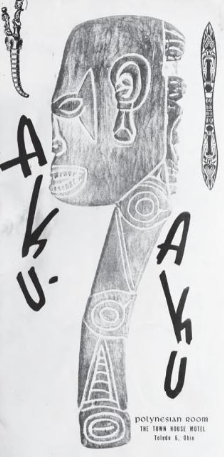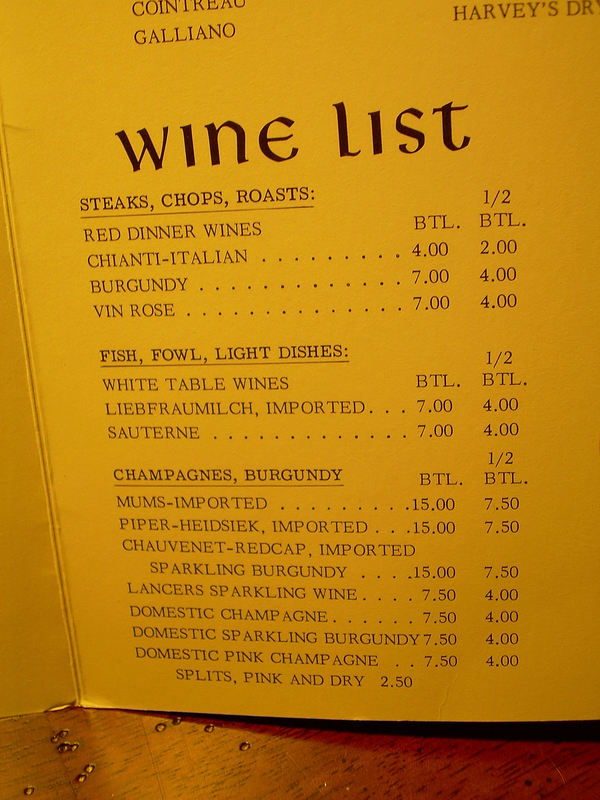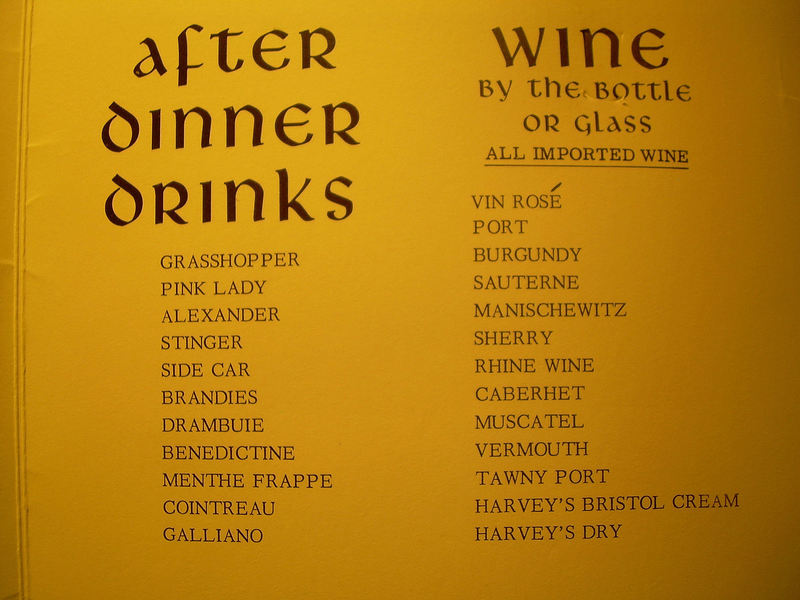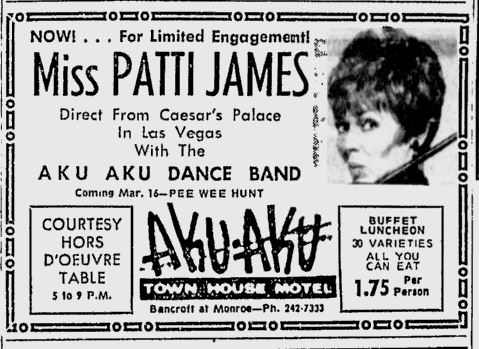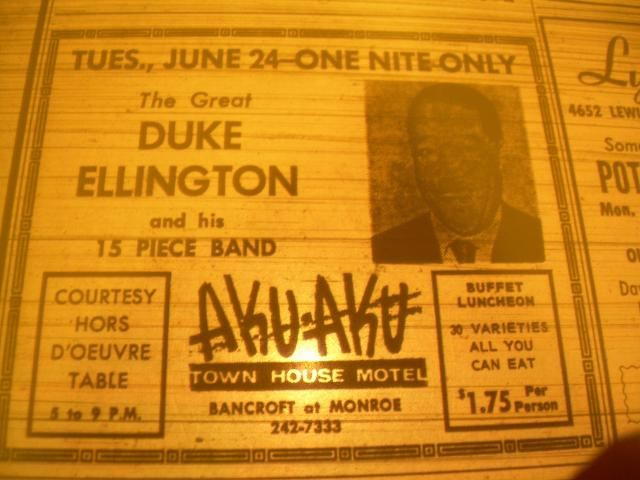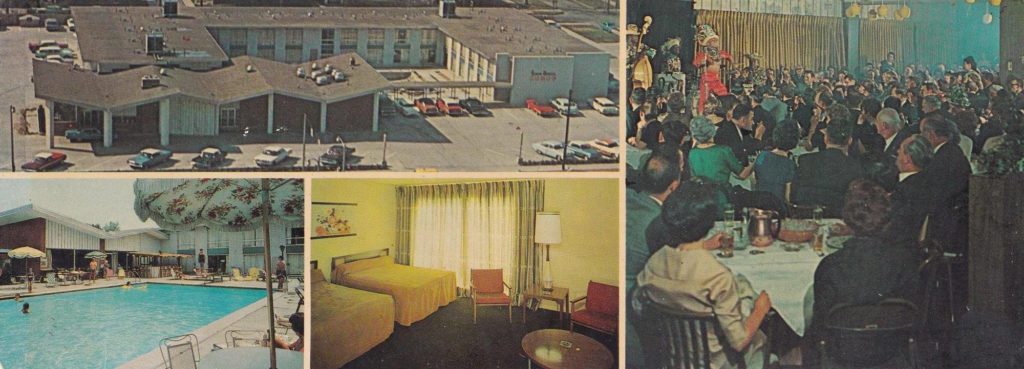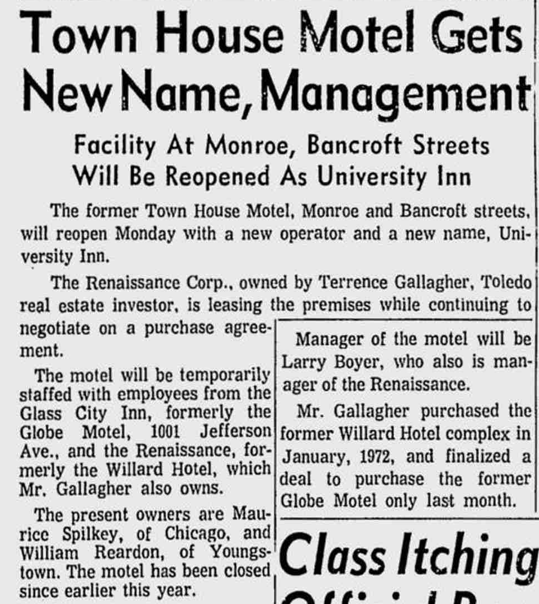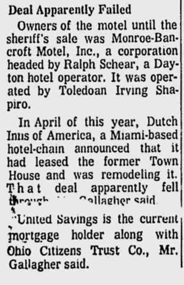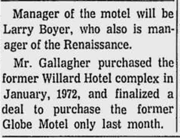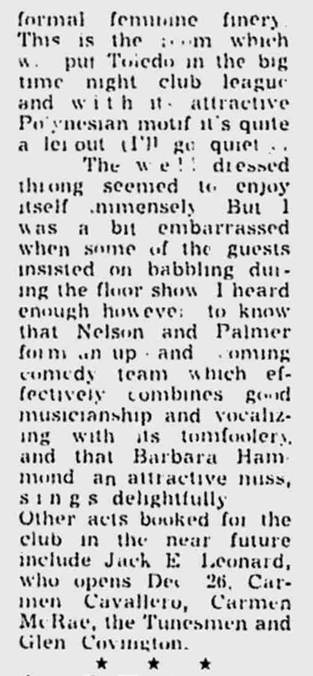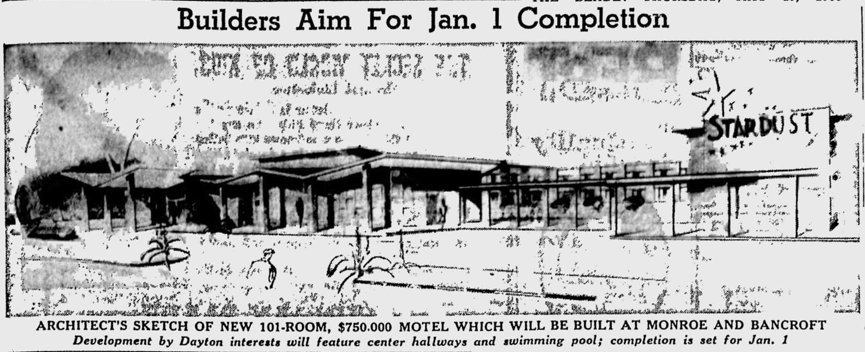Former site of the Notre Dame Academy (Built 1904-Demolished 1960). Aku Aku opened December 13, 1960. Closed 1973. Reopened as trucking motel until 1984. Demolished 1989. Now a Rally’s.
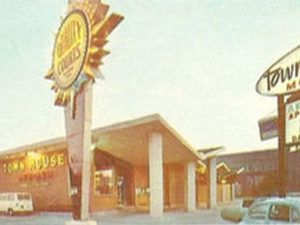
“The Aku-Aku Polynesian Room at the Town House Motel was one of the last great Polynesian supper clubs in Ohio. The hotel complex was originally supposed to be named the Stardust, but it was quickly changed due to another Stardust hotel being located in Las Vegas. The club was owned by Irving “Slick” Shapiro, a bookmaker with several arrests under his belt by the time the Aku-Aku officially opened on December 13, 1960. He was a gracious host with a sense of humor and often greeted people as they walked in the door. For over a decade, the place was famous for hosting some of the biggest names in the entertainment industry; Duke Ellington, Count Basie, Tony Bennett and the Glenn Miller Orchestra all played there.
The Aku-Aku even had its own Polynesian review every night by Moana and her Islanders. It was definitely the hip place to be in the 1960s. Toledo was considered a safe haven for mobsters, and they often attended the Aku-Aku and were seated behind a curtained-off section of the dining room so as not to draw attention to themselves as they watched the show. From 1971 to 1972, the place was under new management and featured more local bands. In 1972, the Town House Motel closed after going into foreclosure, and the site was sold at a sheriff’s auction to recover debt owed to the bank. It eventually reopened as the University Inn, a truck stop hotel in 1973, before closing its doors for good in 1984. The building sat empty for five years before being demolished in 1989. A Rally’s drive-thru now occupies the site. Chester Devenow, a retired chairman of the former Sheller-Globe Corporation, said Toledo will never see a place like the Aku-Aku club again. “It was a gathering place for the top and bottom of society—the elite to the lowest characters that Toledo had to offer. It was the last important gathering place for the last generation of Toledo.” While the Aku-Aku has an impressive history and some stunning use of Tiki iconography, the room itself was streamlined and modern. This was quite the opposite of the immersive faux paradise more commonly known in the 1960s. According to Book of Tiki author Sven Kirsten, “The Aku-Aku is a great example of mid-century modern restaurants that were not expressively Polynesian in decor but lived their exoticness through their cocktails.” – from Ohio Tiki (book) by Jeff Chenault

